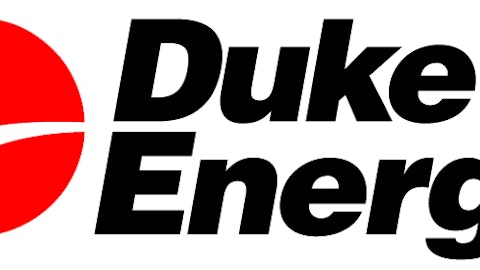With the Environmental Protection Agency (EPA) set to announce rules governing new electric power plants later this month and rules for existing plants next year, Wall Street appears to believe coal is on its deathbed. This view, however, overlooks the many benefits that coal fired power offers.
Always there when you need it
Coal is cheap, plentiful, and reliable. While this trio of benefits doesn’t guarantee the fuel source’s survival, it provides more insurance than you might imagine. For example, the Energy Information Administration (EIA) recently highlighted a demand spike that occurred in the Southwest Power Pool.
Although there is a normal ebb and flow to power demand, April 1 saw an unusually large increase in the hours leading up to the start of the work day. The EIA tracked the production of hydro, nuclear, wind, coal, and natural gas in response to this change in demand. Coal provided “about 70% of the increase in capacity” to deal with the spike, with most of the rest coming from natural gas.
It’s fairly simple to see why. Hydro power and wind power rely on factors largely outside of man’s control. While nuclear power supply can be increased and decreased, it’s far easier to quickly increase utilization at coal and natural gas plants.
Although coal plant construction has effectively been halted, imagine if the only options for dealing with a demand spike were increased use of natural gas or rolling brownouts (or, worse, blackouts). Having two ways to deal with increased demand is the preferable solution.

This is why Duke Energy Corp (NYSE:DUK) recently spoke about “fuel diversity” as a key company asset. To that end, management intends to increase gas powered production from 5% in 2005 to a target of 25% in 2015. The key loser will be coal, which is slated to fall from 55% to 38% over that same period.
However, at the end of the day, Duke Energy Corp (NYSE:DUK) will have gone from a heavy reliance on two fuel sources, coal and nuclear, to a three-legged stool of coal, nuclear, and natural gas. As management suggests, that’s a far more robust system. And, notably, coal remains in the equation.
Costs count
And that doesn’t even consider cost. Natural gas is relatively cheap right now, but that hasn’t always been the case. If coal were to “go away,” power companies would be beholden to the price of natural gas. If gas costs rose enough, customer bills could quickly go through the roof.
The impact of fuel cost is far more prominent than you might expect when it comes to enhancing profitability. For example, American Electric Power Company, Inc. (NYSE:AEP) decreased its use of natural gas by 37% in the first half as natural gas prices rose dramatically year over year. Coal use increased about 4%.
And this is at a point where both are plentiful and relatively cheap. If natural gas prices were to spike and remain elevated, the shift back in favor of coal would likely be even more pronounced at American Electric Power Company, Inc. (NYSE:AEP) and others with the flexibility to switch between the two.
This is why coal miner Alpha Natural Resources, Inc. (NYSE:ANR) is confident that coal will remain “the first or second main source of power” in this country. It’s also why American Electric Power Company, Inc. (NYSE:AEP) is planning to build more natural gas plants, but isn’t intending to eliminate coal completely from its power portfolio.
Good coal/bad coal
Unfortunately for Alpha Natural Resources, Inc. (NYSE:ANR), its largest thermal coal operation is in the Northern and Central Appalachian regions, where coal isn’t as competitive with natural gas. This area represents about 45% of its business. The Powder River Basin (PRB), which accounts for about 10% of the company’s business, is the cheapest coal basin in the country and holds much more promise. Still, with nearly half of its business coming from more expensive coal, Alpha Natural Resources, Inc. (NYSE:ANR) has some notable headwinds to deal with.
That’s one reason why you might prefer Cloud Peak Energy Inc. (NYSE:CLD), which is almost exclusively focused on thermal coal from the PRB. While Alpha Natural Resources, Inc. (NYSE:ANR) has lost money in eight of the last 10 quarters, Cloud Peak has actually been in the black for the past two and a half years despite coal’s malaise. The second quarter was its weakest, with earnings of just $0.08 a share.
While that’s not a good sign, cost savings and utilities increasingly burning down their PRB coal inventories suggest 2014 could be a much better year. That’s particularly true if natural gas prices remain at recent levels.
Diversification
Natural gas is clearly the fuel source of the future in this country. However it is premature to call the death of coal. It is far more likely that coal will simply have to share the limelight. Utilities like American Electric Power Company, Inc. (NYSE:AEP) and Duke Energy Corp (NYSE:DUK), valuing diversified power portfolios, will benefit from natural gas’ rise and from fighting for coal’s future. In fact, that’s why Duke Energy Corp (NYSE:DUK) brought a newly constructed advanced coal plant online in June.
Coal companies, meanwhile, will have to deal with a more competitive utility market, with some coal basins being favored over others. And the increased use and supply of natural gas will increasingly operate as a key factor in coal’s pricing and demand. That just means that companies like Alpha Natural Resources, Inc. (NYSE:ANR) will have to adjust quickly to a new world while better positioned companies like Cloud Peak Energy Inc. (NYSE:CLD) appear to have an important head start.
The article Reliability Ensures Coal’s Future originally appeared on Fool.com and is written by Reuben Brewer.
Reuben Brewer has no position in any stocks mentioned. The Motley Fool has no position in any of the stocks mentioned.
Copyright © 1995 – 2013 The Motley Fool, LLC. All rights reserved. The Motley Fool has a disclosure policy.





